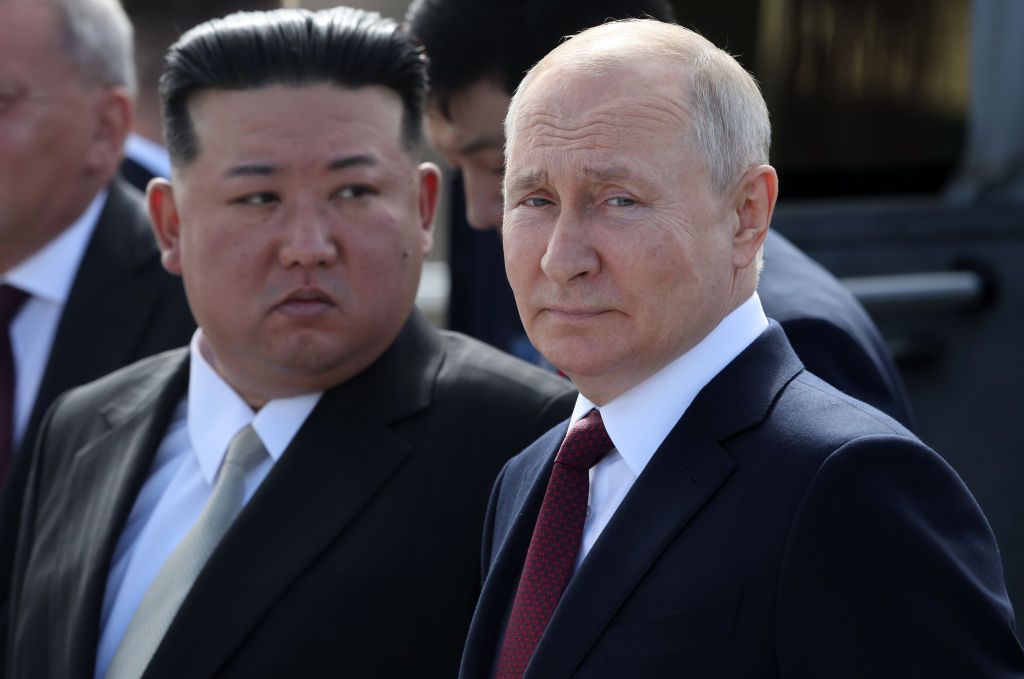Russia’s decision to veto the annual renewal of the panel of experts monitoring U.N. sanctions against North Korea has drawn criticism from several U.N. members. The move, which took place on March 28, was seen as a means for Russia to shield its purchases of North Korean arms for its war effort against Ukraine. This action has led to concerns that it will embolden North Korea to act with further impunity, jeopardizing global security. The U.S. representative in the U.N., Robert Wood, and the South Korean Ambassador both expressed their disapproval of Russia’s veto, accusing Russia of prioritizing its war in Ukraine over nuclear non-proliferation efforts.
The White House announced that North Korea had delivered over 1,000 containers of military equipment and ammunition to support Russia’s war against Ukraine. This revelation raised alarms about the new dynamics between Russia, China, and North Korea, pointing to the detrimental impact on Ukraine. Russian ties with North Korea have strengthened in recent years, with reports indicating that North Korea has supplied Moscow with extensive military packages, including ballistic missiles and artillery shells. Ukrainian prosecutors alleged that Russia had attacked Ukraine using North Korean missiles on multiple occasions, further highlighting the concerning relationship between Russia and North Korea.
The U.N. Security Council had imposed sanctions on North Korea in 2006 to curb its nuclear and ballistic missile programs, with an expert panel established in 2009 to monitor compliance. However, Russia’s veto effectively halts the work of this panel while leaving the sanctions intact. Russia’s envoy to the U.N., Vasily Nebenzya, criticized the effectiveness of the sanctions, calling for a review of the measures and advocating for moving restrictions to an annual basis. This move by Russia has raised questions about the enforcement of U.N. sanctions and the implications for global security.
Ukraine’s Foreign Minister, Dmytro Kuleba, condemned Russia’s veto as a “guilty plea,” accusing Moscow of openly engaging in military cooperation with North Korea in violation of sanctions. Kuleba highlighted Russia’s use of North Korean weapons in the war against Ukraine as evidence of Russia’s disregard for international norms and security. The ongoing conflict in Ukraine has brought attention to the complex alliances and arms deals that are shaping the conflict, with implications for regional stability and global security. The veto by Russia has underscored the challenges faced in addressing the proliferation of weapons and maintaining peace in the region.
The relationship between Russia and North Korea continues to evolve, with Russia increasingly relying on North Korea as a source of military equipment and ammunition. The flow of arms from North Korea to Russia has raised concerns about the potential impact on regional security and stability. The use of North Korean missiles in the conflict in Ukraine has highlighted the dangers of arms proliferation and the need for international cooperation in enforcing sanctions. The situation underscores the importance of monitoring and regulating the flow of arms between countries to prevent conflicts and safeguard global security.
In conclusion, Russia’s veto of the U.N. expert panel renewal regarding North Korea sanctions has sparked condemnation and raised concerns about the potential impact on global security. The close ties between Russia and North Korea, as evidenced by the delivery of military equipment to support Russia’s war in Ukraine, have underscored the complexities of arms deals and alliances in the region. The veto by Russia has drawn attention to the need for stronger enforcement of sanctions and international cooperation to prevent the proliferation of weapons and maintain peace. The situation highlights the challenges faced in addressing conflicts and upholding security in the face of shifting alliances and arms deals.


